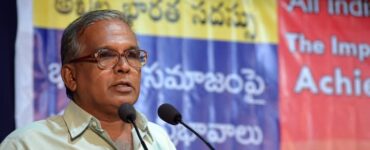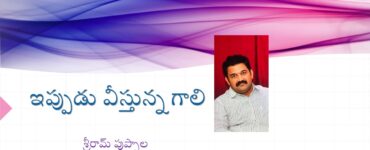For the purpose of this rumination, I shall put aside my doubts regarding my writerly status. I shall allow myself to say, along with Sylvia Plath, “let me live, love, and say it well in good sentences.” My love affair with good sentences is an old one; as a child, I would memorize written words or expressions that caught my fancy by instantly applying them in sentences in my mind. The wisdom of hindsight says that I must have been unconsciously resisting ttime’s attempts at erasing the beauty of human utterance and expression. I did not understand then that my love of the written word camouflaged my desire to “say it well in good sentences” someday.
Say what, when and how remained nebulous; I did not think seriously about it until well into my thirties when I had somewhat settled into the role of an academician. Away from home and the humdrum of city life, living by myself in a rural setting, I had some time to catch my breath and introspect on my relationship with words. I realized that there would never be enough time or a certain ‘best time’ to start writing. But since every writer is a reader first, let me try and put into words how the joy of reading arrived at my door. Initially unstructured, reading started with random magazines and newspapers in English and Bangla, including the patient, and cautious act of cutting open the folds of paper packets made from old dailies (‘thnowa’ in Bangla) to read a piece that caught my eye or even a print advert, if its tagline was witty. My uunstructured reading also included interpreting people’s facial expressions and body language. It helped that I was a quiet child: I didn’t know then as I do now the importance of observation in writing. The unique, the aberrant, the unusual in people and situations make their way into the amorphous substance we call ‘memory;’ the writer then reshapes them into a poem or a story, mixing memory, desire and imagination – a complex concoction out of which all writing is born.
Four was a significant age for me; I was admitted to school and structured reading began. Oh, the joy of reading Tagore’s Sahaj Path, illustrated with Nandalal Bose’s inimitable sketches, or the many poems in the school anthologies that beckoned you to eat ‘luchi,’ sing with the birds, learn from nature, and take a dip in the village pond on a sultry summer day! My soul responded to the call of the images as if it had awakened from centuries of slumber. The table of life was laid in the book-world, and I was feasting without a soul knowing about it! The joy of this private feast, which the habit of reading fosters, would later lead to journeys of the mind unfold the myriad mysteries of the world before a hungry heart, and above all, teach me the comfort and grace, the ananda, of solitude essential for a thinker and writer. The same year my maternal grandfather, ‘Dadubhai,’ an avid reader, gifted me three books – abridged biographies of Sri Ramakrishna, Ma Sarada and Swami Vivekananda written by Swami Vishwsrayananda, for the child reader. The books carried an inscription in Dadubhai’s beautiful handwriting in red ink that would be a permanent fixture on the many books he would gift me over the years: “Shundor ke dilam” (“Gifting to Shundor”), followed by the year of the gift. To think that he called me ‘Shundor’ (‘Beautiful’ in Bangla) gives me a strange comfort now that I cannot put into words. Back then, the colourful, illustrated world of his gifts sucked me into their world instantly, and I did not anticipate that my membership to this enchanted space would be for life.
My paternal grandfather – Dadai – and my mother, both understood and fed my hunger for books the best they could. Maa narrated stories of princes, princesses, and rakshasas from Thakurmar Jhuli, introduced me to Abol Tabol and such other books that formed the staple diet for Bengali children of my generation while Dadai bought me a wide variety of books, my favourites being Chambal er Dakat (The Dacoits of Chambal) and Shotyi Bhoot er Golpo (Real-life Ghost Stories), which my sister kept head-down on the table because the ghost-face on the cover scared her. But the one book that had a significant impact on my life came home holding Dadubhai’s hand again: on my eleventh birthday, he gifted me the phenomenal Kishore Puran Shomogro (Collected Myths from the Puranas for Young Adults) that included prominent Indian myths from twenty ‘puranas’ or collections of ancient Indian para-religious tales. Many years later, in my Ancient European Classics classes at the university, I smiled to myself thinking how I wasn’t shocked by the erotic escapades of Jupiter, or the rage and jealousy of the indignant Juno because I’d been exposed to flawed Indian gods years ago, through Kishore Puran. More importantly, Dadubhai’s gift revealed to me, at a tender age, that myths contain a different kind of truth – a combination of knowledge and imagination – that helps in creative and critical thinking and affords us a glimpse into the most profound aspects of life.
As the years flew by, I had the good fortune of being taught and mentored by some of the best English teachers, who introduced me to the nuances of reading and writing. Ms. Jayashree Sengupta especially comes to mind because she taught us early how to pronounce ‘Madame’ so it could be distinguished from ‘Madam.’ Ms. Sonali Iyengar followed as a strong influence, with her emphatic pronunciation and her detailed, engaged approach to teaching. And then, I joined Presidency College. It changed the way I looked at literature and reading for ever; every single lecture, in effect, was a masterclass on how to read, how to engage with a text critically and creatively. The central Arts library as well as the Departmental library were treasure troves; I borrowed my first Greek and Roman classics from these libraries. The Late Professor Kajal Sengupta once evoked the image of a stone dropped into a pond in one of her initial classes; the point in the water where the stone landed was our syllabus, she explained, but we had better start reading the widening ripples, she emphasized, for that would be important in life. A thin volume on English history, in addition to selected chapters from Edith Hamilton’s Mythology and selected Books from The Bible – all of these ‘out of syllabus’ – were compulsory reading. We were being mentored the old-school way, and I loved every moment of it. In Presidency, I read to my heart’s content, often forgetting if I was studying for an English literature degree, or reading for pleasure.
My father, an engineer and a firm believer in the pragmatic sciences of engineering, did not believe in reading for pleasure. Time had to be put to good use, not to seek pleasure. He always mentioned “natok-novel” (‘drama-and-fiction’ by which, I suppose, he meant ‘literature’) in the context of establishing the impracticality of a situation – “Such things happen only in drama-and-fiction,” he would say, dismissively. He scrutinized my first Jane Austen (Pride and Prejudice) thoroughly before being convinced of its worth and its age-appropriateness because its cover page portrayed a handsome young couple dancing in a ballroom. I was thirteen or fourteen maybe, and love was a taboo subject. But it wouldn’t be an exaggeration to say that despite his vigilance, I literally lived on books during this period in my life. I lived a secret life about which he was clueless. The malaise continued until about the age of twenty-six, when juggling my first job with pursuing an MPhil degree would turn out to be a killjoy as far as my reading spree was concerned. In the intervening period, however, I read extensively in both Bangla and English; by eighteen I had read much of Saratchandra Chattopadhyay, some incredibly difficult and complex novels by Bankimchandra Chattopadhyay, and found solace in Rabindranath Tagore, my lifelong guru and mentor. My ability to read these authors in Bangla is a blessing for which I cannot thank life enough. From classics to comics, from Felu Da and Nancy Drew and the Hardy Boys to Miss Marple and Hercule Poirot, from Barbara Cartland to Mills & Boon, from Sidney Sheldon to James Hadley Chase, from Stephen King to Bram Stoker, I devoured them all, mostly secretly. Sometimes hidden inside the pages of school textbooks – especially convenient for the purpose was the large Frank School Atlas – and sometimes covering romantic books with brown paper to pass them off as textbooks before my strict father’s watchful eyes.
The same father, however, was incredibly proud of every single piece I wrote in his lifetime. My chief regret as a writer is that my first short story in The Statesman – the newspaper to which he remained loyal until his death – got published just three days after he passed away. I had wanted to throw him a pleasant surprise, but life had other plans.
Barely a few poems, essays and short stories old as a writer, I’ve only just embarked – as always, late – on what I hope would be a lifelong journey. My years of reading – of words, and the images they evoke in the reader’s mind; of sentences that glide through or drag, haltingly, creating the desired effect; of authors who invest the ordinary with uniqueness, and sacredness – have also been years of training. Caught in the maze of life, yet observing it unfold from the window seat with a sense of amused detachment, I hope my writings take my readers to those hidden nooks and corners of their minds to which no maps exist.
Bio note:
Anuradha Mazumder is an Assistant Professor of English in Prafulla Chandra College, Kolkata. An alumna of Presidency College and Calcutta University, she completed her M. Phil. in English from Jadavpur University and is currently pursuing her PhD from the University of Burdwan. She is the author of Jane Austen’s Pride and Prejudice: With an Introduction and Explanatory Notes (2018). Her poetry and short fiction have been published in Setu, Muse India and Café Dissensus.
*









Add comment